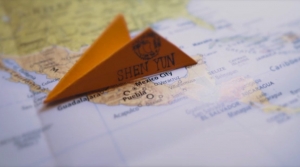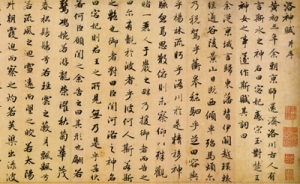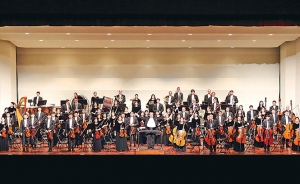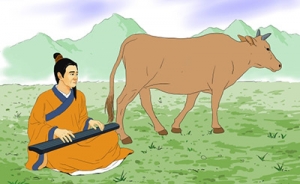Bringing Chinese Culture Back to its Homeland
"Our show presents authentic traditional Chinese culture. Unfortunately, you cannot see a show like this in China. But being based outside of China, Shen Yun is able to freely present these traditions on stage."
When our emcees reveal this fact to our audience, I cannot help but feel saddened by its irony. You would think that the best way to learn about a culture is to visit its country of origin. So why would a showcase of traditional Chinese culture be banned from its own birthplace?
Like many fellow performers, I was raised outside of China, nurtured under the values and influences of Western society. I only had a superficial understanding of my own culture. Of course, it wasn't that there was no Chinese culture to experience—Australia is known for multiculturalism and the Asian population in my area was not small. I spoke Cantonese at home, attended Chinese school on Saturdays, and went to Chinese restaurants more often than not. But that was far from being able to truly appreciate my own heritage.
I had no idea that Chinese culture was known as a “semi-divine culture.” I knew nothing about the Confucian values of benevolence, righteousness, propriety, knowledge, and integrity, which were the behavioral norms of ancient Chinese society. I knew very little about China’s history spanning 5,000 years—I only learned about the Qin Dynasty in high school (and that dynasty lasted only 15 years). I didn't know many Chinese proverbs, stories or legends (except Journey to the West), let alone the lessons they passed down through generations. In other words, I didn't know much about being Chinese—I was a true blue Aussie and proud of it.
But ironically, I didn't discover Chinese culture in mainland China—I found it in the United States after joining Shen Yun as a dancer.
Participating in Shen Yun has allowed me to realize and relive my own lost culture, as well as given me an opportunity to share its beauty with the rest of the world. Perhaps the greatest discovery I've made is that traditional Chinese values are timeless and universal, which is why I think audiences around the world, regardless of ethnicity, find that these ideas resonate with them. I'm very glad to have rediscovered my roots, and I know many of us here feel the same way.
So I was saddened to find the degree to which, in China, the regime has tried to systematically erase the glorious history and keep out of the minds of today's young Chinese.
I recall reading fellow dancer Ophelia Wu's blog about going to high school in China—a shocking revelation of what the educational system in China is really like—today. Students don't know how to treasure their own culture, and instead are forced to reject it while being brainwashed with political dogma. They are made to believe that ancient society was backward and that the Communist Party is “mighty, glorious and correct.”
Belief in the divine is an integral part of Chinese traditions, and yet students are forced into atheism. The entire educational system is designed to wipe out the very essence of being Chinese.
Why would the Chinese regime seek to eradicate such a magnificent, profound culture—one that has defined the Chinese people and is being universally recognized through Shen Yun’s performances? It just doesn’t make sense.
Come to think of it, I actually feel quite fortunate to have been born overseas, away from that kind of repressive environment. Yet I also feel a sense of responsibility. I want to share with those young people in China the beauty of their own heritage. After all, they’re just like me, and they have every right to know about their own culture.
I firmly believe that one day, we'll bring authentic traditional Chinese culture back to its homeland.

Gary Liu
Dancer
February 22, 2012






